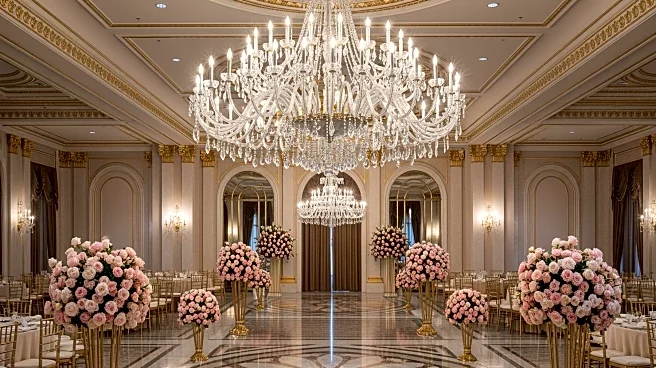What's Happening?
The White House has disclosed a list of major corporate donors contributing to President Donald Trump's proposed 90,000-square-foot ballroom. Companies such as Apple, Amazon, Lockheed Martin, Microsoft,
Google, Coinbase, Comcast, and Meta are among the contributors. President Trump has emphasized that the ballroom project, estimated to cost $300 million, will be privately funded by himself and these donors, ensuring no taxpayer money is used. Additional notable donors include the Winklevoss twins, Commerce Secretary Howard Lutnick and his family, and the Adelson family. The ballroom is part of a broader initiative to enhance the White House's facilities.
Why It's Important?
The construction of a new ballroom at the White House represents a significant private-public collaboration, highlighting the influence of major corporations in political projects. This development could set a precedent for future private funding of government-related projects, potentially reducing taxpayer burdens. However, it also raises questions about the influence of corporate donors on political decisions and the ethical implications of such contributions. The involvement of high-profile companies and individuals underscores the intersection of business interests and political initiatives.
What's Next?
As the project progresses, scrutiny from political leaders and the public is likely to increase, particularly regarding the transparency of funding and the potential benefits to the donors. The ballroom's construction will also involve logistical challenges, including the demolition of parts of the White House's East Wing. Stakeholders will be watching closely to see how the project unfolds and whether it meets its financial and operational goals without public funding.











